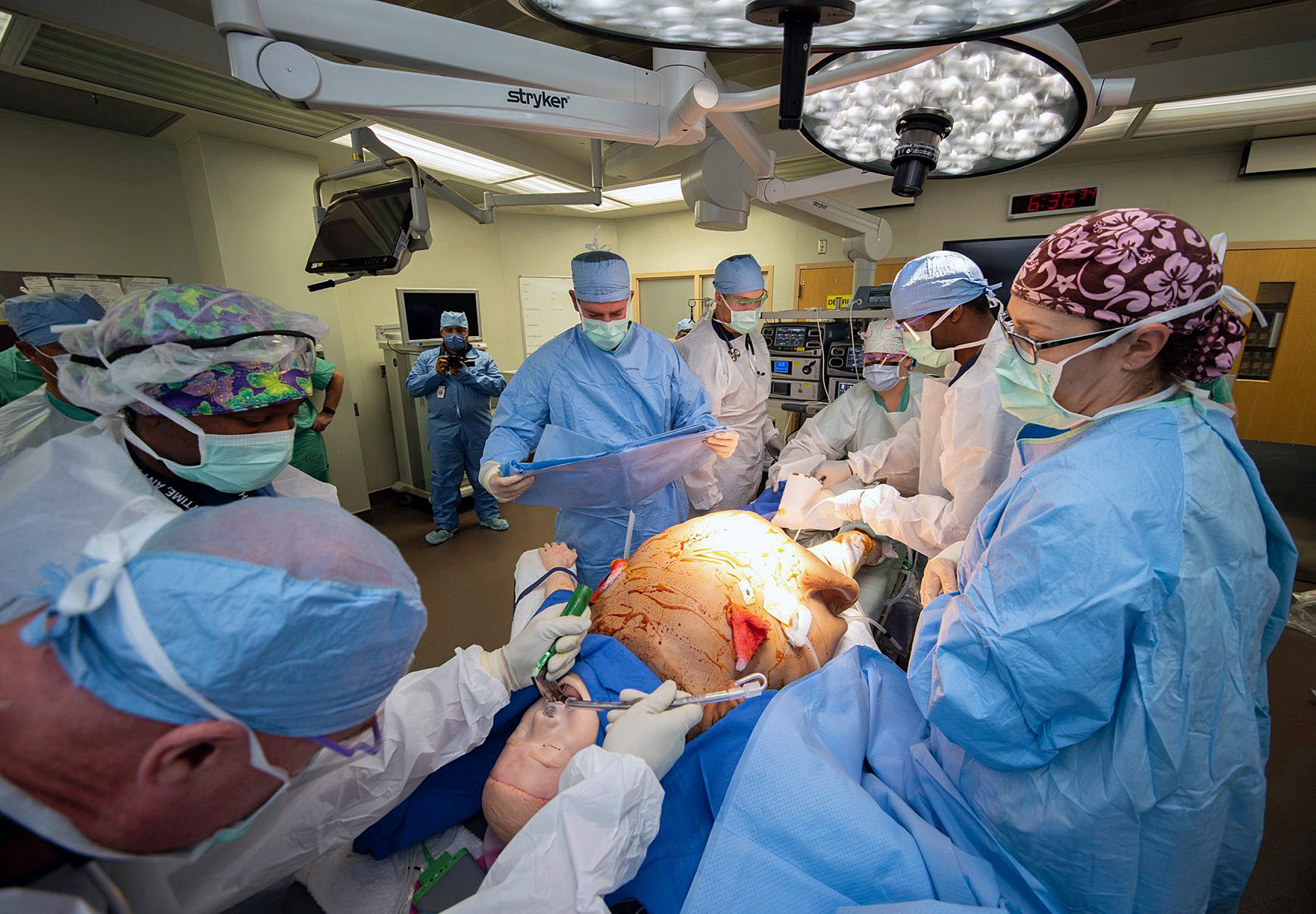What is Trauma Surgery?
Trauma surgery refers to surgical procedures that are performed to treat physical injuries caused by accidents, falls, or other types of trauma. It involves both emergency and planned surgeries, focusing on managing life-threatening injuries, fractures, and soft tissue damage. Trauma surgery is essential in stabilizing patients and preventing further complications from severe injuries, including those involving the head, chest, abdomen, and limbs.
Why Choose India for Trauma Surgery?
India is renowned for providing high-quality trauma surgery services at a fraction of the cost compared to many Western countries. India’s hospitals are equipped with the latest medical technology and staffed by experienced trauma surgeons, making it a preferred destination for medical tourism.
Key Advantages of Choosing India:
- Affordable Treatment: Trauma surgery in India costs up to 70% less than in Western countries.
- Top Surgeons: India is home to leading trauma surgeons with expertise in handling complex trauma cases.
- Advanced Technology: Indian hospitals use state-of-the-art technology, including minimally invasive procedures, to ensure the best outcomes.
- Accredited Hospitals: India’s top trauma care centers are internationally recognized for providing superior care and treatment.
- Seamless Medical Tourism Services: Healtour Solutions offers comprehensive support, including travel arrangements, accommodation, and visa assistance for international patients.
Types of Trauma Surgeries
Trauma surgeries vary depending on the type and severity of the injury. Some common trauma surgeries include:
- Fracture Repair: Surgical correction of bone fractures, which may involve the use of screws, plates, or rods to stabilize the bones.
- Craniotomy: A procedure to treat severe head injuries by removing part of the skull to access the brain.
- Chest Trauma Surgery: Surgical intervention to treat injuries to the chest, including the lungs, ribs, and heart.
- Abdominal Surgery: Surgery to address internal bleeding, organ damage, or injuries to the abdominal region.
- Vascular Surgery: Repair of damaged blood vessels due to trauma.
- Soft Tissue Repair: Surgery to treat injuries to the skin, muscles, and other soft tissues.
Symptoms Indicating the Need for Trauma Surgery
Trauma surgery is often required when injuries are severe and life-threatening. Common symptoms that may indicate the need for immediate surgery include:
- Severe Bleeding: Persistent or uncontrollable bleeding after an accident or injury.
- Loss of Consciousness: Unconsciousness following an injury, especially to the head or neck.
- Bone Deformities: Visible fractures, misalignment, or protrusions of bones.
- Breathing Difficulty: Difficulty breathing or shortness of breath, especially after chest trauma.
- Severe Abdominal Pain: Pain in the abdomen accompanied by signs of internal bleeding or organ damage.
- Uncontrolled Pain: Intense and unmanageable pain following an accident or injury.
If any of these symptoms are observed, immediate medical attention is essential.
The Procedure for Trauma Surgery
The trauma surgery process typically involves the following stages:
Pre-Surgical Assessment:
- A thorough evaluation including diagnostic imaging (X-rays, CT scans, MRIs) to assess the extent of injuries.
- Blood tests and consultations with trauma surgeons and other specialists to plan the surgery.
Surgical Procedure:
- Trauma surgery is usually performed under general anesthesia. The surgical team works to stabilize the patient and repair the injuries.
- Minimally invasive techniques may be used where applicable to reduce recovery time and improve outcomes.
Post-Surgery Recovery:
- After surgery, the patient is transferred to a recovery room where they are monitored for any complications.
- The recovery time depends on the severity of the injuries and surgery but typically ranges from a few days to weeks.
- Pain management, physical therapy, and regular check-ups are part of the recovery process.
Benefits of Trauma Surgery
- Life-Saving Treatment: Trauma surgery often provides the critical intervention needed to save lives after severe accidents.
- Improved Recovery Outcomes: Quick and effective surgical intervention helps improve recovery time and reduce long-term complications.
- Prevention of Further Injury: Surgical repair prevents further damage to vital organs, tissues, or blood vessels, improving overall prognosis.
- Restoration of Function: Surgery helps restore physical function, mobility, and overall health after traumatic injuries.
Why Choose Healtour Solutions for Trauma Surgery?
Healtour Solutions partners with top trauma care centers in India to provide comprehensive, affordable trauma surgery services for international patients. Our team ensures a seamless medical journey, from the moment of consultation to recovery.
Reasons to Choose Us:
- Experienced Trauma Surgeons: We collaborate with the best trauma specialists in India, ensuring the highest quality of care.
- Comprehensive Support: From initial consultation to post-surgery follow-ups, we coordinate every step of your medical journey.
- Affordable Care: We offer affordable trauma surgery options, allowing you to save significantly compared to Western countries.
- Advanced Medical Facilities: We work with hospitals equipped with cutting-edge technology and international healthcare standards.
- Medical Tourism Assistance: Healtour Solutions handles all aspects of travel, accommodation, and visa support, ensuring a stress-free medical journey.
Post-Surgery Recovery and Care
Recovery after trauma surgery is critical to the patient’s overall well-being. Key aspects include:
- Immediate Recovery: Monitoring in the recovery room to ensure there are no complications and managing pain.
- Hospital Stay: The length of stay depends on the surgery's complexity and the patient’s health status.
- Pain Management: Adequate pain relief measures are provided to ensure comfort during recovery.
- Physical Rehabilitation: In some cases, physical therapy may be required to restore movement, strength, and function after surgery.
- Follow-Up Visits: Regular follow-up visits are essential to monitor recovery progress, manage complications, and plan any further treatments.
Cost of Trauma Surgery in India
The cost of trauma surgery in India varies depending on the type and complexity of the injury, as well as the hospital where the surgery is performed.
Approximate Costs of Trauma Surgery:
- Fracture Repair Surgery: ₹30,000 to ₹1,50,000 (Approx. $400 - $1,800)
- Craniotomy (Head Injury Surgery): ₹1,00,000 to ₹4,00,000 (Approx. $1,200 - $4,800)
- Chest Trauma Surgery: ₹80,000 to ₹2,50,000 (Approx. $1,000 - $3,000)
- Abdominal Trauma Surgery: ₹70,000 to ₹2,00,000 (Approx. $850 - $2,400)
- Soft Tissue Surgery: ₹30,000 to ₹1,00,000 (Approx. $400 - $1,200)
India offers high-quality trauma surgery at significantly lower costs than Western countries.
Frequently Asked Questions (FAQs)
1. What is trauma surgery?
Trauma surgery is the surgical treatment of injuries caused by accidents or other trauma, including fractures, organ damage, and internal bleeding.
2. When is trauma surgery needed?
Trauma surgery is required when the injuries are life-threatening or complex, such as severe fractures, head trauma, or internal organ damage.
3. How long is recovery after trauma surgery?
Recovery time varies depending on the severity of the injury and the surgery. It generally takes from a few days to several weeks.
4. Is trauma surgery painful?
Modern anesthesia and pain management techniques minimize pain during and after surgery.
5. What are the risks of trauma surgery?
As with any surgery, there are risks such as infection, bleeding, or complications related to anesthesia, but these risks are minimized with expert surgeons.
6. How much does trauma surgery cost in India?
The cost varies depending on the complexity of the surgery but is generally much more affordable than in Western countries, starting at ₹30,000.
7. Is medical tourism available for trauma surgery in India?
Yes, Healtour Solutions provides comprehensive medical tourism support, including travel, accommodation, and visa assistance for international patients.
8. What are the common types of trauma surgery?
Common types include fracture repair, craniotomy (head surgery), chest trauma surgery, abdominal surgery, vascular surgery, and soft tissue repair.
9. How soon can I travel after trauma surgery?
The time required to travel after surgery depends on your recovery. It is essential to follow your doctor’s advice and ensure you are stable before traveling long distances.
10. Can trauma surgery prevent future complications?
Yes, trauma surgery aims to repair injuries and prevent complications such as internal bleeding, organ failure, or long-term disability. Early intervention increases the chances of a full recovery.
11. Is there any post-surgery support for international patients?
Yes, Healtour Solutions ensures post-surgery care with follow-up consultations and recovery support. We also provide rehabilitation and physical therapy services.
12. How do I choose the right hospital for trauma surgery?
Healtour Solutions partners with top hospitals in India known for their expertise in trauma care. Our team can help you choose the best hospital based on your needs and preferences.




